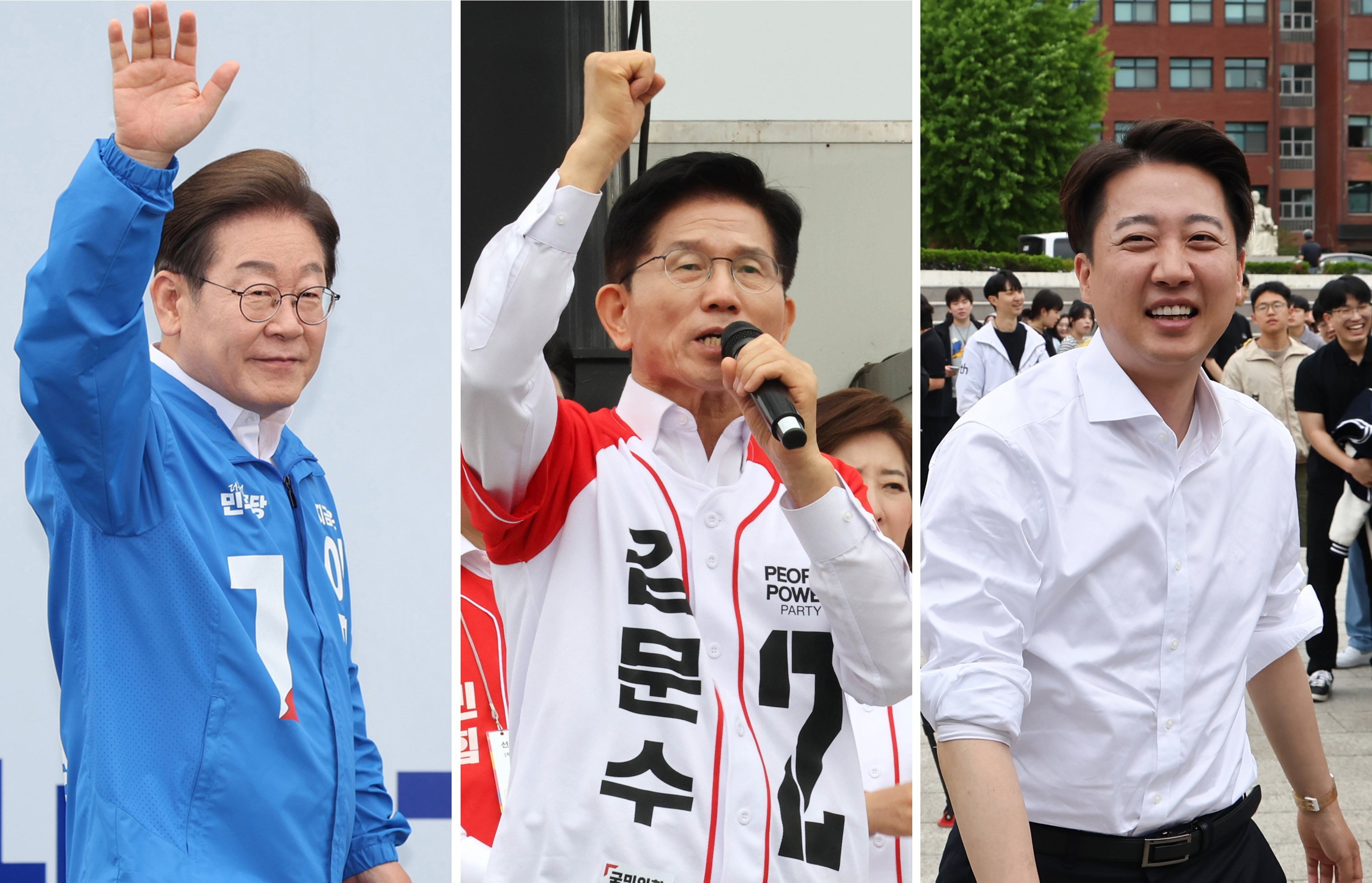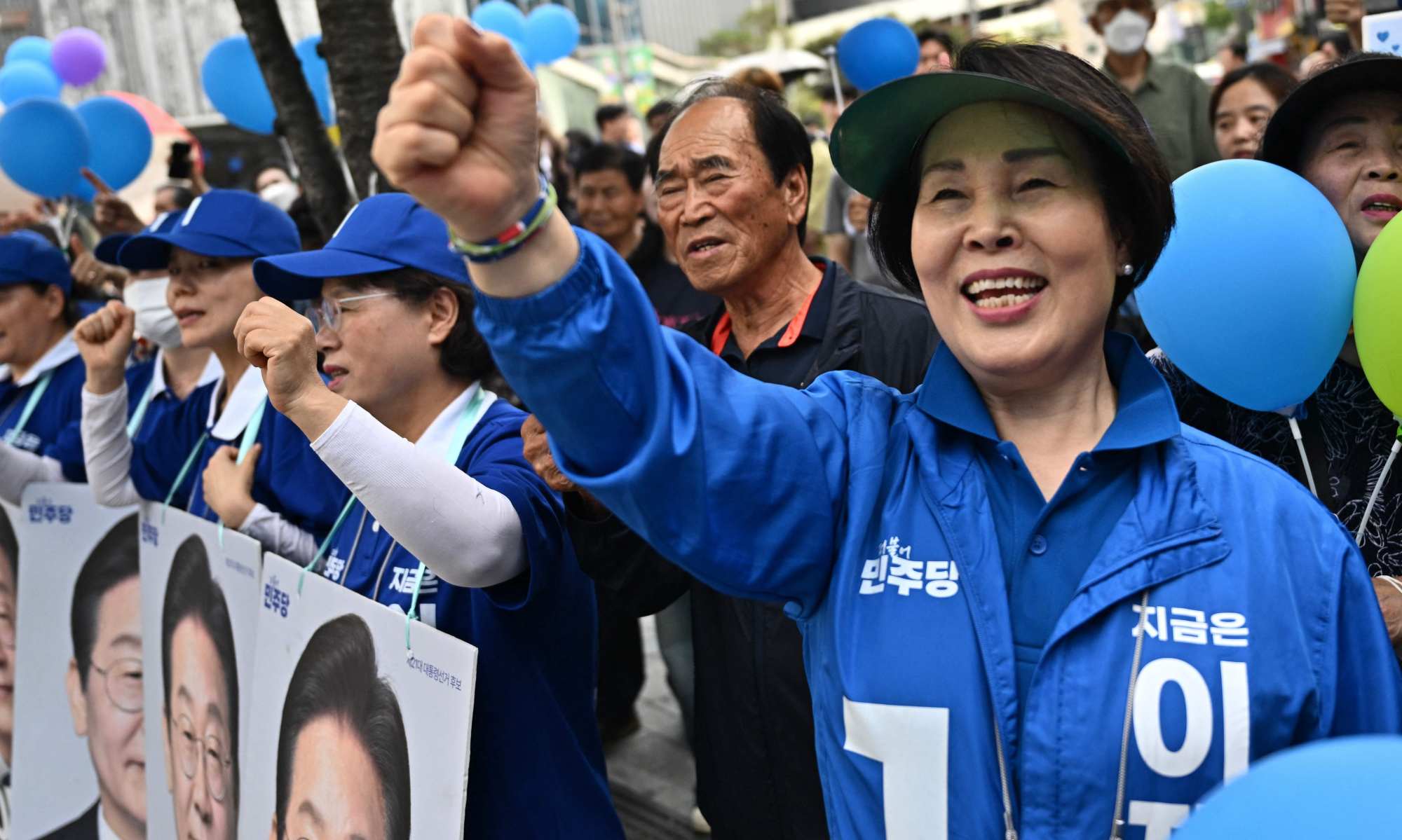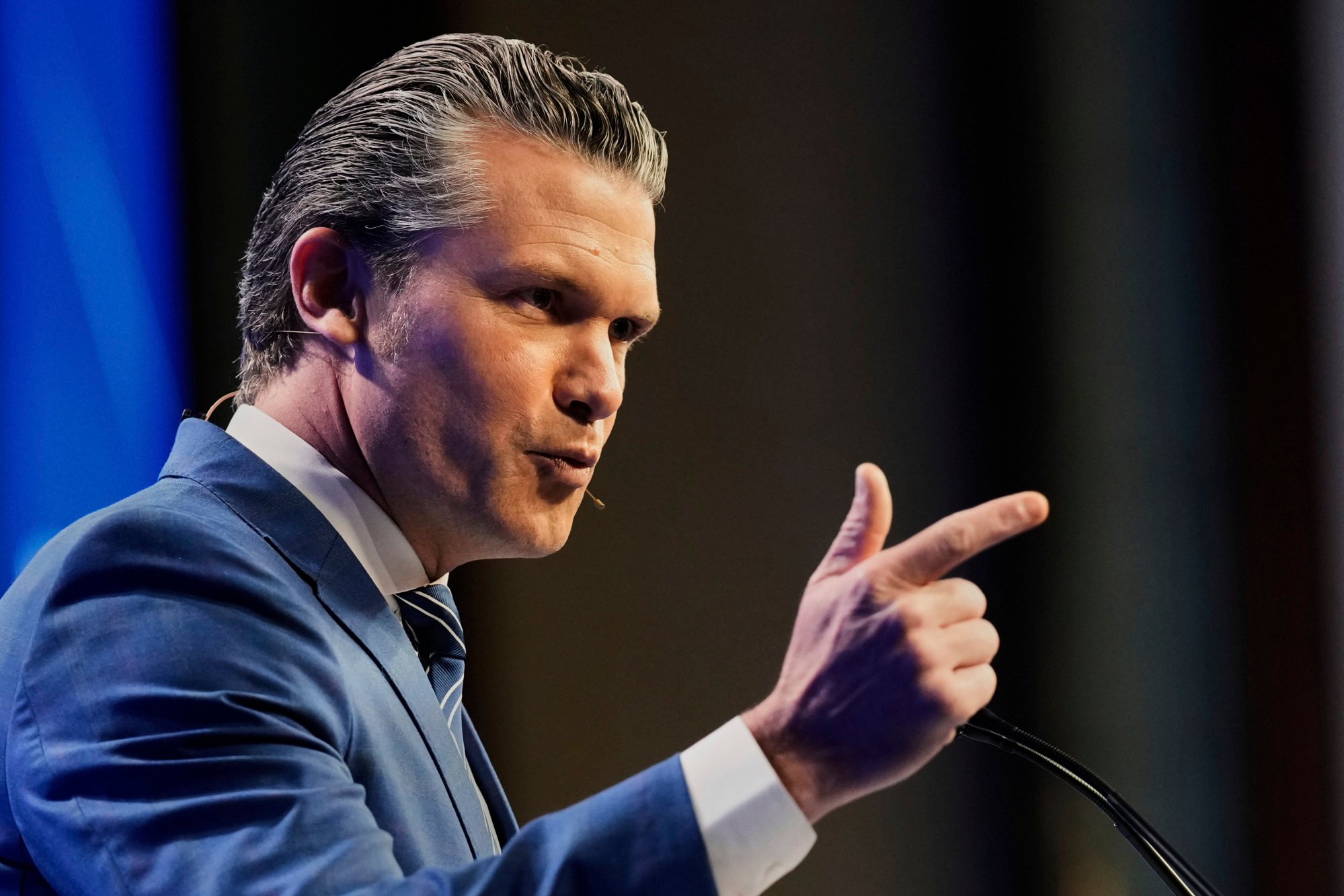South Korea’s presidential election puts its US alliance, Taiwan stance at stake
The winner of Tuesday’s snap presidential election will face ‘the worst troubles in economy and security’, analysts say

As South Koreans prepare to vote in a snap presidential election that could reshape Seoul’s defence spending and its approach to a potential conflict over Taiwan, the future of the nation’s foreign policy and its alliance with the United States hangs in the balance.
On Tuesday, South Koreans will go to the polls to elect a successor to impeached president Yoon Suk-yeol, with Lee Jae-myung of the centre-left Democratic Party of Korea (DPK) widely expected to win by a comfortable margin.
Observers say that Lee, if elected, will walk a tightrope between an increasingly “critical” Washington over Seoul’s part in defence-sharing, while softening the conservatives’ hardline stance on Beijing and avoiding any part in a possible war over Taiwan.
Lee said last week that the 28,500 US soldiers stationed in South Korea played a “very important role in the United States’ containment policy against China” amid talks of a troop drawdown and reassignment elsewhere.
In response to a question about whether he would help Taiwan repel an invasion from mainland China, he sidestepped the issue, saying: “I’ll think about that when aliens try to invade Earth.”

Beijing sees Taiwan as part of China, to be reunited by force if necessary. Most countries, including the US, do not recognise Taiwan as an independent state, but Washington opposes any attempt to take the self-governed island by force and is committed to supplying it with weapons.
The winner of Tuesday’s snap election will have little time to prepare for office, as he will be sworn in immediately.
And “the worst troubles in economy and security” for decades awaited him, lawmaker Kim Joon-hyung of the progressive Rebuilding Korea Party said on Monday.
“Still, South Korea may find room to manoeuvre between President Trump’s transactional, budget-driven diplomacy and the Pentagon’s hardline approach – perhaps by agreeing to an increased defence burden-sharing to stay out of a Taiwan conflict,” Kim told This Week in Asia.
“Turning our back entirely on China would be catastrophic for our economy and security. We could end up in a situation like Ukraine.”
Once the new government is formed, the National Assembly – controlled by the DPK and Kim’s party – plans to push through a resolution, co-sponsored by Kim and 21 other lawmakers, urging the administration to refrain from intervening in a possible armed conflict over Taiwan.
US Defence Secretary Pete Hegseth raised eyebrows at the 2025 Shangri-La Dialogue in Singapore last week by accusing China of using economic entanglement with Asian nations to undercut American efforts to contain its growing aggression.
However, the proposed resolution faces strong opposition from conservatives. Former People Power Party leader Han Dong-hoon condemned it as “the apex of pro-China, subservient diplomacy”.
The resolution also includes a controversial clause calling on US forces stationed in South Korea to pledge not to be mobilised in any conflict outside the Korean peninsula.
Kim, who is a former head of the Korea National Diplomatic Academy, expressed concern over growing US-Japan military coordination, noting that Washington was deploying B-1B bombers to Japan and reinforcing stealth fighters in South Korea.
“If these deployments are intended to prepare for conflict with China – rather than focusing on North Korea – and to pull South Korea into a Taiwan crisis, then that is unacceptable,” he said.

At the Shangri-La Dialogue, Hegseth stressed the urgency of addressing the China threat, warning it could materialise soon. He urged Indo-Pacific allies to ramp up their own defence spending.
“Facing these threats, we know that many countries are tempted by the idea of seeking both economic cooperation with China and defence cooperation with the United States,” he said.
“Now that is a geographic necessity for many. But beware the leverage that the [Communist Party] seeks with that entanglement. Economic dependence on China only deepens their malign influence and complicates our defence decision space during times of tension.”
Hegseth noted that Nato members, including Germany, were committing to spend 5 per cent of their gross domestic product on defence.
“So it doesn’t make sense for countries in Europe to do that while key allies in Asia spend less on defence in the face of an even more formidable threat – not to mention North Korea,” he added.
‘Difficult to maintain ambiguity’
Doo Jin-Ho, an analyst at the Korea Institute for Defence Analyses, said South Korea would likely bear the brunt of US pressure as Washington intensified efforts to force its Asian allies to choose between the two superpowers.
“South Korea is much more reliant on the US defence commitment than other Asian nations, even as China remains its largest trading partner,” he said.
“It’s becoming increasingly difficult for South Korea to maintain strategic ambiguity – the balancing act between China and the US – especially as Washington hints at the possibility of troop reductions in the South to gain greater strategic flexibility in containing China.”
According to Doo, the Pentagon believes Seoul should abandon its neutral stance and actively support US efforts to counter an assertive China.
“We can’t afford to turn China into an enemy,” he said, pointing to the deep economic downturn that followed Yoon’s failed martial law declaration on December 3.
“This is a time for strategic patience,” Doo added, urging South Korea to weather rising US pressure on multiple fronts – including tariffs, relations with China, and changes in American troop deployments.
The Trump administration has denied recent media reports suggesting the US is considering withdrawing 4,500 troops stationed in South Korea.
Victor Cha, Korea Chair at the Centre for Strategic and International Studies think tank that organised the Shangri-la Dialogue, said last week that despite those denials, he believed the issue was “seriously under consideration by the Pentagon and by the uniformed services”.
North Korea’s relationship with China – and its trade volume – had not only recovered but now exceeded pre-Covid levels, Cha said. Meanwhile, questions remained about the strength of US commitment to its allies.
The Trump administration, he said, was focusing the bulk of military attention on a potential conflict involving Taiwan and the first island chain in the western Pacific, rather than on the Korean peninsula.
“This could create an environment in which the North Koreans feel a little bit more confident than they should be, and could lead to miscalculation,” Cha warned.
Evans Revere, a former US acting assistant secretary of state for East Asian and Pacific affairs, said there was concern in Washington over a potential DPK victory in South Korea, especially because of the possibility it might bring “significant shifts” in the country’s foreign and security policy.
If Lee wins, he will have to deal with a US president who has often voiced scepticism about the value of the South Korea alliance and who has been “very critical” of Seoul’s stance on defence burden-sharing and trade, according to Revere.
“It will take strong leadership and close consultation between the two presidents to guide the US and [South Korea] through some potentially troubled waters,” Revere told This Week in Asia.